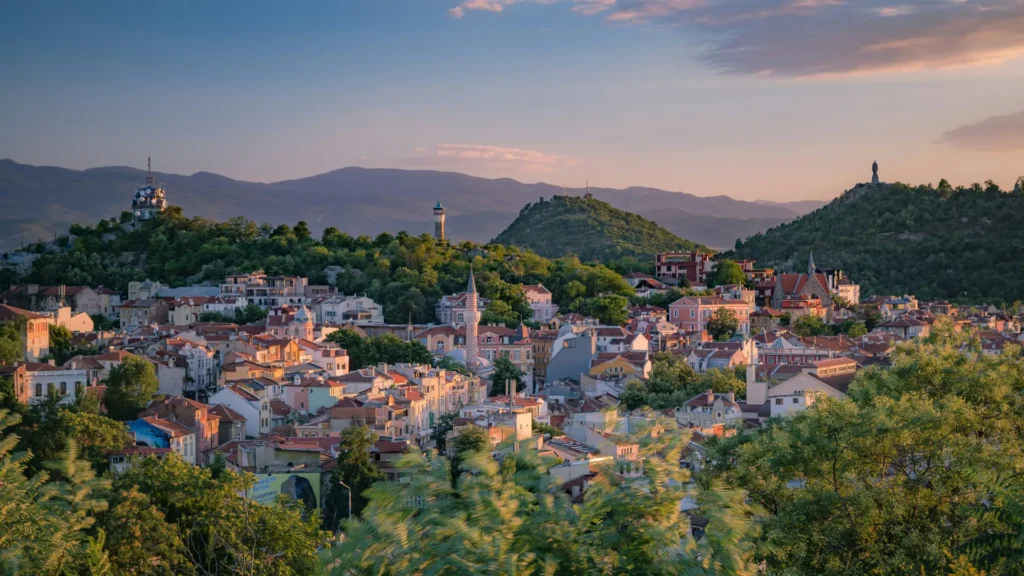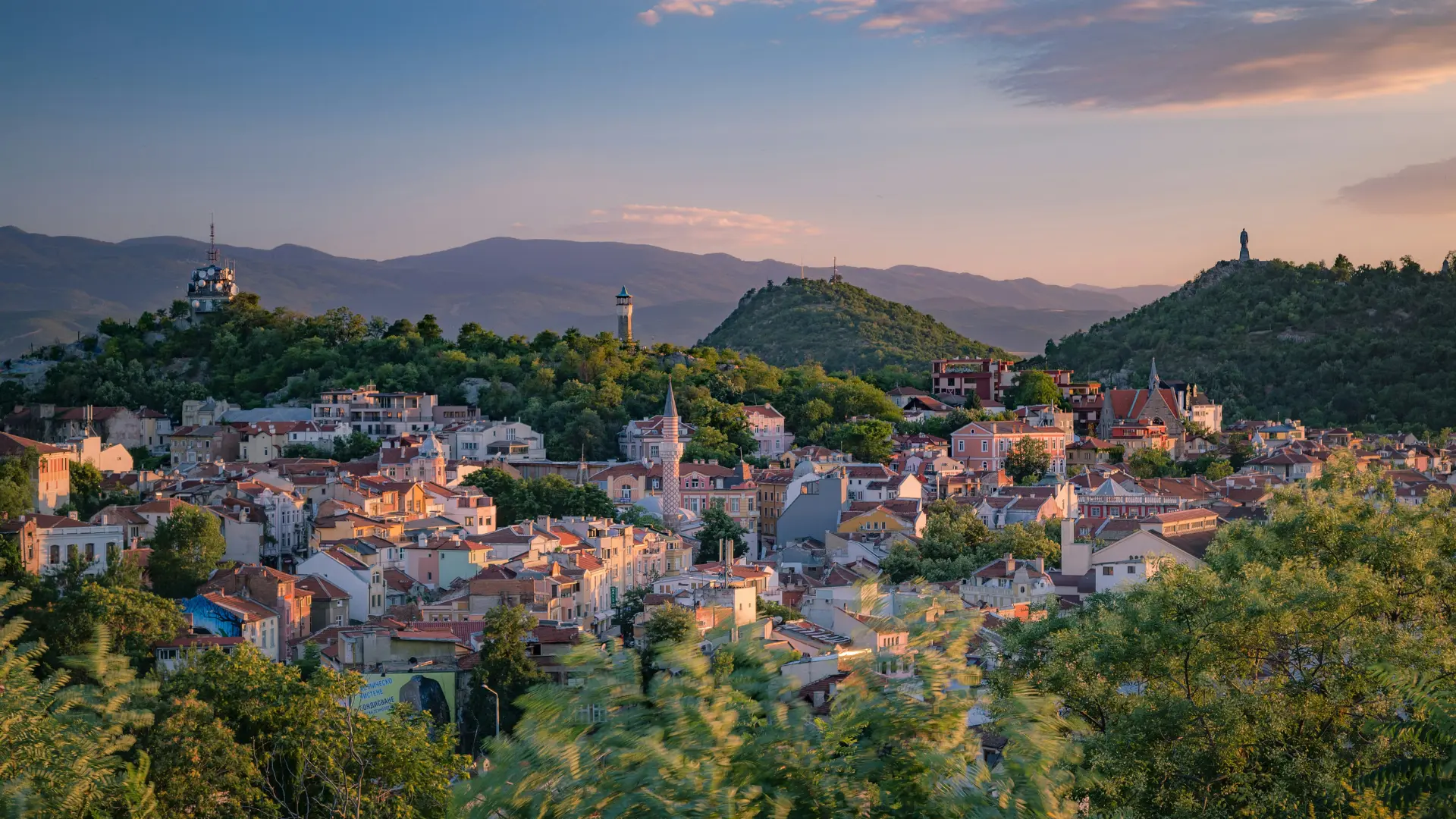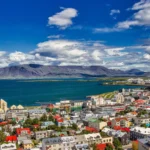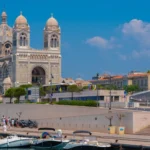Imagine stepping off a plane after a long journey, the air around you carrying the scent of mountains and sea. The very first thing you notice on your phone is a new clock setting: time in Bulgaria. It feels different—perhaps just a couple of hours ahead or behind your home country, yet it shapes everything you’re about to experience.
Understanding local time is more than just adjusting your watch. It decides when you’ll catch your next train, how you’ll sync with colleagues back home, and even when you’ll enjoy dinner since Bulgarians eat later than you might expect. When you grasp the rhythm of life here, your travels become smoother, more immersive, and far more enjoyable.
This guide gives you everything you need: how Bulgaria’s time zone works, when daylight saving starts and ends, the best time to visit Bulgaria, and a seasonal travel guide to help you plan unforgettable moments. By the end, you’ll not only know what time it is—you’ll know how to make the most of it.

Table of Contents
Understanding the Local Time in Bulgaria
What Time Zone Is Bulgaria In?
Bulgaria operates on Eastern European Time (EET), which is UTC +2 hours. During the summer, it shifts to Eastern European Summer Time (EEST), which is UTC +3 hours.
- Standard time (winter): UTC +2
- Daylight Saving Time (summer): UTC +3
Daylight Saving begins on the last Sunday of March and ends on the last Sunday of October. If you arrive in Sofia or Varna during those months, you’ll notice longer daylight hours—perfect for evening strolls, open-air cafes, and lively festivals.
Time Difference Between Bulgaria and Major Countries
One of the first things you’ll want to know is how Bulgaria’s clock compares to your own. Whether you’re traveling for leisure or working remotely, this knowledge saves you from missed calls, awkward scheduling, or showing up too early for a tour.
Here’s a quick reference table:
| Country/City | Time Difference (Winter) | Time Difference (Summer) |
|---|---|---|
| London (UK) | +2 hours | +2 hours |
| New York (USA) | +7 hours | +6 hours |
| Los Angeles (USA) | +10 hours | +9 hours |
| Toronto (Canada) | +7 hours | +6 hours |
| Sydney (Australia) | +9 hours | +7 hours |
| Paris (France) | +1 hour | +1 hour |
| Athens (Greece) | Same time | Same time |
Travel tip: If you’re planning meetings with colleagues in North America, aim for late afternoons in Bulgaria—it’s still morning across the Atlantic.
Best Times to Visit Bulgaria
Time in Bulgaria isn’t only about clocks and hours; it’s also about seasons. Each period of the year offers a unique flavor of culture, scenery, and activities. Choosing when to go can make the difference between a crowded beach trip and a peaceful mountain escape.
Spring (March–May): Awakening and Fresh Beginnings
- Weather: Mild, with temperatures between 10°C–20°C (50°F–68°F).
- Highlights: Easter celebrations, blooming wildflowers, fewer tourists.
- Best for: Exploring cities like Plovdiv and Sofia without heavy crowds.
When you visit in spring, you’ll notice locals welcoming the season with Baba Marta Day on March 1. People wear red-and-white bracelets called martenitsi, a symbol of health and renewal.
Summer (June–August): Beach and Sun Paradise
- Weather: Hot and sunny, averaging 25°C–35°C (77°F–95°F).
- Highlights: Black Sea coast resorts, music festivals, lively nightlife.
- Best for: Swimming, sunbathing, and coastal adventures.
The Black Sea resorts—Sunny Beach, Golden Sands, and Sozopol—come alive during summer. If you’re a fan of music, you’ll also catch open-air festivals where time seems to stretch into long nights.
Autumn (September–November): Colors and Harvests
- Weather: Cooler, with temperatures from 10°C–25°C (50°F–77°F).
- Highlights: Wine harvest festivals, colorful foliage, cultural events.
- Best for: Vineyard tours, hiking, and photography.
Autumn is the hidden gem of Bulgarian travel. Crowds thin out, the vineyards in Melnik and Plovdiv burst with activity, and mountain trails turn golden with falling leaves.
Winter (December–February): Snow and Tradition
- Weather: Cold, with temperatures ranging -5°C–5°C (23°F–41°F).
- Highlights: Skiing in Bansko, Orthodox Christmas and New Year festivities.
- Best for: Winter sports, spa retreats, cultural holidays.
Winter in Bulgaria is magical. In Bansko and Pamporovo, you’ll find world-class slopes at a fraction of the price you’d pay in Western Europe. Combine skiing with thermal spa visits, and you’ve got a perfect holiday rhythm.
Monthly Weather and Daylight Table
Here’s a quick monthly breakdown to help you plan:
| Month | Avg Temp (°C) | Daylight Hours | Travel Notes |
|---|---|---|---|
| January | -2 to 4 | 9 | Great for skiing |
| February | 0 to 7 | 10 | Winter festivals |
| March | 4 to 13 | 11 | Easter prep, early spring hikes |
| April | 7 to 18 | 12 | Rain possible, blossoms peak |
| May | 12 to 23 | 14 | Best for city trips |
| June | 16 to 27 | 15 | Start of beach season |
| July | 19 to 31 | 15 | Peak summer, crowded resorts |
| August | 18 to 31 | 14 | Perfect for seaside holidays |
| September | 15 to 26 | 13 | Wine harvest festivals |
| October | 10 to 19 | 11 | Autumn hikes |
| November | 5 to 12 | 10 | Rainy but quiet |
| December | 0 to 7 | 9 | Christmas markets & skiing |
Traveler’s Insight: If you’re seeking warm evenings and lively beaches, July and August are unbeatable. If you prefer cultural depth and fewer crowds, May, September, or October are your golden windows.
Practical Tips for Managing Time in Bulgaria
Even if you’ve traveled widely, each country has its own rhythm. Bulgaria is no different. Knowing how to adapt to the time in Bulgaria will save you from stress, missed connections, and wasted hours. Here are the most practical ways you can adjust.
Adjusting to the Time Zone
Jet lag can throw off your entire trip if you don’t prepare for it. You can ease into the Bulgarian time zone with a few simple strategies:
- Shift your sleep before departure: If you’re coming from North America, go to bed a bit earlier each night leading up to your flight.
- Soak up sunlight on arrival: Bulgaria enjoys long daylight hours in summer. Exposure to natural light helps reset your body clock.
- Stay hydrated: Flights can dehydrate you, which worsens jet lag symptoms.
- Plan your first day wisely: Avoid cramming in too many activities right after arrival. Take a light walk, enjoy a Bulgarian meal, and ease into the new pace.
With these adjustments, your body will align with Bulgarian time faster, allowing you to enjoy your first sunrise over Sofia or your first evening at the Black Sea without feeling sluggish.
Public Transportation and Time in Bulgaria
Transport in Bulgaria is affordable, but schedules can vary. While long-distance trains and buses tend to run on time, rural or mountain routes may not. Understanding how locals view time in relation to travel makes your journey smoother.
- Trains: Intercity trains follow fixed timetables. Buy your ticket in advance, especially for night trains.
- Buses: More frequent than trains, buses connect even small towns. However, leave some buffer time as minor delays happen.
- Domestic flights: Operating mainly from Sofia, Varna, and Burgas, flights stick closely to their schedules.
Tip: Download local apps or use Google Maps to check real-time updates. Bulgarians generally value punctuality, so don’t assume you can arrive late.
Business and Remote Work Considerations
If you’re planning to work while visiting, understanding time overlaps is crucial.
- With Western Europe: Bulgaria is usually 1 hour ahead. This makes scheduling simple if you’re dealing with London, Paris, or Berlin.
- With the US: Afternoon hours in Bulgaria align with morning work hours in New York and Toronto. Perfect for video calls.
- With Asia: Evening in Bulgaria lines up with morning in countries like Japan or South Korea.
By syncing your work schedule with Bulgarian time, you’ll stay productive without missing out on cultural experiences. Many digital nomads choose Bulgaria for its low cost of living and strong internet infrastructure, making time management an even greater asset.
Cultural Significance of Time in Bulgaria
While clocks measure hours, culture defines how those hours are lived. To truly understand time in Bulgaria, you need to see how locals shape their days, seasons, and traditions.
Daily Rhythm and Lifestyle
The Bulgarian daily schedule might surprise you. While many European countries follow rigid timelines, Bulgarians blend practicality with a relaxed approach.
- Work hours: Typically 9 AM to 6 PM, though smaller businesses may close for lunch breaks.
- Meals: Breakfast is light (banitsa with yogurt). Lunch, around 1–2 PM, is hearty and often the main meal of the day. Dinner happens later, often between 8–9 PM.
- Social life: Evenings are vibrant. Cafés and restaurants stay busy late into the night, especially in summer when warm air fills city squares.
If you’re used to early dinners, you’ll quickly notice how different the rhythm feels here. Embracing it means eating later, walking after meals, and savoring the slower pace of evenings.
Festivals and Holidays That Shape Time in Bulgaria
Bulgaria’s calendar is filled with traditions that change how time is experienced. Plan your trip around these events, and you’ll see how locals live beyond the clock.
- Kukeri Festival (January–February): Men wear elaborate costumes and masks, performing dances to chase away evil spirits.
- Baba Marta Day (March 1): Locals exchange red-and-white bracelets symbolizing health and spring.
- Rose Festival (June): Celebrated in the Valley of Roses, where you’ll see parades, folk dances, and rose oil distillation.
- Christmas & Orthodox Easter: These religious holidays bring families together with midnight church services, feasts, and folk traditions.
Each event shifts the rhythm of daily life. Shops may close, towns fill with music, and the atmosphere changes. When you align your visit with these celebrations, you’ll experience time in Bulgaria as more than numbers on a clock—it becomes cultural immersion.
Seasonal Travel Guide with Time-Saving Itineraries
Every season in Bulgaria has its own rhythm. If you plan your time well, you can enjoy the country’s highlights without feeling rushed. Here are sample itineraries designed to help you experience the best of each season while respecting the natural flow of time in Bulgaria.
Summer Itinerary: Black Sea Adventure (7 Days)
Day 1–2: Sofia Exploration
- Morning: Visit Alexander Nevsky Cathedral
- Afternoon: Explore Vitosha Boulevard for shopping and dining
- Evening: Try traditional dishes like shopska salad and kavarma
Day 3–5: Sunny Beach or Golden Sands
- Morning: Relax at the beach
- Afternoon: Water sports or a boat trip
- Evening: Nightlife on the Black Sea coast
Day 6: Nessebar Old Town
- Wander the cobbled streets of this UNESCO site
- Enjoy seafood at a harbor-side restaurant
Day 7: Departure from Varna or Burgas
- Last-minute shopping and souvenirs
Tip: In summer, daylight stretches until after 9 PM. Use these extra hours for long evening walks by the sea.
Winter Itinerary: Ski & Spa Escape (5 Days)
Day 1: Sofia Arrival
- Warm up in a cozy Bulgarian tavern (mehana)
- Early rest to adjust to cold weather
Day 2–3: Bansko Skiing
- Morning: Ski or snowboard on Pirin Mountain slopes
- Afternoon: Après-ski in local pubs
- Evening: Traditional dinners with mulled wine
Day 4: Thermal Spa Experience
- Visit Sapareva Banya or Velingrad for mineral baths
- Combine spa relaxation with mountain views
Day 5: Cultural Day in Plovdiv
- Walk through the Old Town and Roman Amphitheater
- Afternoon train back to Sofia for departure
Tip: Winter days are shorter, with sunsets around 5 PM. Start activities earlier to maximize daylight.
Spring & Autumn Itinerary: Cultural Highlights (6 Days)
Day 1–2: Sofia & Rila Monastery
- City sightseeing and day trip to Rila Monastery
- Evening cultural shows or folk dances
Day 3–4: Plovdiv
- Explore the Kapana art district
- Visit vineyards around the Thracian Valley (autumn harvest tours are unforgettable)
Day 5: Veliko Tarnovo
- Discover the medieval Tsarevets Fortress
- Evening light-and-sound show (if available)
Day 6: Departure via Sofia
Tip: Spring and autumn daylight ranges from 11–13 hours, giving you plenty of time for cultural sightseeing without the intensity of summer heat.
Conclusion:
Time is more than a number on a clock—it’s the heartbeat of your journey. In Bulgaria, you’ll discover that every season carries its own rhythm, whether it’s the long summer evenings along the Black Sea, the cozy winter nights in Bansko, or the golden autumn afternoons in the vineyards of Melnik.
By understanding the local time zone in Bulgaria, adjusting smoothly to jet lag, and planning your trip around the best seasons, you’ll avoid confusion and maximize your travel experience. Embracing the daily lifestyle of locals—late dinners, long walks, and lively festivals—gives you a deeper connection to the country.
FAQ : about Time in Bulgaria
What is the current time in Bulgaria right now?
Bulgaria runs on Eastern European Time (UTC +2) or Eastern European Summer Time (UTC +3) depending on the season. You can check the exact live time on your smartphone’s world clock or websites like timeanddate.com.
Does Bulgaria observe Daylight Saving Time?
Yes. Clocks move forward by one hour on the last Sunday of March and back one hour on the last Sunday of October.
Is Bulgaria in the same time zone as Greece or Romania?
Yes, Bulgaria, Greece, and Romania all share the EET/EEST time zone. This makes regional travel very convenient.
Are Bulgarians strict about punctuality?
Generally, yes—especially in business and transport. Social gatherings, however, tend to be more flexible with time.








Leave a Reply